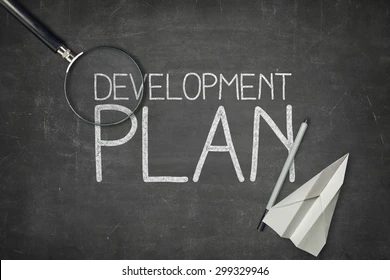Ph.D. in Development Planning: Introduction, Admission, Registration, Eligibility, Duration, Fees, Syllabus 2024

Introduction:
Embarking on a journey towards a Ph.D. in Development Planning is a testament to one's dedication to understanding and shaping the future of societies. This comprehensive guide aims to shed light on every aspect of this enriching academic pursuit.
Admission Process:
- Application Submission: Candidates need to submit their applications online or through mail, including transcripts, letters of recommendation, statement of purpose, and a research proposal.
- Entrance Exam: Some institutions may require candidates to appear for an entrance exam assessing their aptitude and subject knowledge.
- Interview: Shortlisted candidates may undergo an interview to assess their research interests, goals, and suitability for the program.
- Language Proficiency: Proficiency in the language of instruction, usually English, is often required, demonstrated through standardized tests like TOEFL or IELTS.
- Selection: The final selection is based on academic merit, research potential, interview performance, and alignment of research interests with faculty expertise.
Eligibility:
- Master's Degree: A master's degree in a relevant field such as urban planning, economics, sociology, or geography is typically required.
- Minimum GPA: Most programs require a minimum GPA, usually 3.0 or higher on a 4.0 scale.
- Research Experience: Demonstrated research experience through publications, thesis work, or professional projects is often preferred.
- Recommendation Letters: Strong recommendation letters from academic or professional referees highlighting the candidate's research potential and capabilities.
- Statement of Purpose: A compelling statement of purpose outlining the candidate's research interests, motivations, and future goals is essential.
- GRE Scores: While not always mandatory, some institutions may require GRE scores, especially for international applicants.
Completion Time:
The completion time for a Ph.D. in Development Planning typically ranges from 3 to 6 years, depending on factors such as research complexity, funding availability, and individual progress.
Career Opportunities:
- Academic Positions: Opportunities to work as professors or researchers in universities and research institutions.
- Government Agencies: Roles in government departments or agencies focusing on urban development, regional planning, or economic policy.
- Non-Profit Organizations: Positions in international development organizations, NGOs, or think tanks, working on sustainable development projects.
- Consulting Firms: Employment in consulting firms specializing in urban and regional development, offering expertise to public and private sector clients.
- Policy Analysis: Opportunities to work as policy analysts or advisors, shaping public policies related to infrastructure, housing, and community development.
Syllabus:
- Theoretical Foundations: Understanding theories of development, urbanization, globalization, and sustainable development.
- Quantitative Methods: Application of statistical and econometric methods for analyzing development data and policy impacts.
- Qualitative Research: Techniques for qualitative research such as case studies, interviews, and participatory approaches.
- Policy Analysis: Evaluating development policies and interventions, assessing their effectiveness and implications.
- GIS and Spatial Analysis: Utilizing Geographic Information Systems (GIS) for spatial planning and analysis of development patterns.
- Advanced Seminars: Specialized seminars on topics like housing policy, transportation planning, environmental sustainability, and social justice.
Internship Opportunities:
- Government Agencies: Internships with government departments or agencies involved in urban and regional planning initiatives.
- NGOs and Non-Profit Organizations: Internship opportunities with NGOs working on community development, poverty alleviation, and environmental conservation projects.
- Research Institutes: Internships at research institutes focusing on development studies, providing hands-on research experience.
- Consulting Firms: Internship programs with consulting firms specializing in development consulting, offering exposure to real-world projects.
- International Organizations: Internships with international development organizations like the World Bank, UNDP, or regional development banks, gaining exposure to global development issues.
Scholarships and Grants:
- Institutional Scholarships: Many universities offer merit-based scholarships or fellowships to Ph.D. students based on academic excellence.
- Government Funding: Government agencies or research councils may provide funding through grants or scholarships for research projects aligned with national priorities.
- External Fellowships: Organizations like Fulbright, DAAD, or the Ford Foundation offer fellowships for graduate studies in development-related fields.
- Research Assistantships: Opportunities to work as research assistants on faculty projects, receiving stipends or tuition waivers in return.
- Industry Sponsorship: Some companies or foundations sponsor Ph.D. research in specific areas of interest, providing financial support and access to resources.
FAQs:
Can I pursue a Ph.D. in Development Planning with a non-related undergraduate degree? Yes, but you may need to demonstrate relevant coursework or work experience to compensate for the lack of a related degree.
Do I need to have prior research experience to apply for a Ph.D. program? While prior research experience is beneficial, it's not always mandatory. Highlight any relevant research experience or projects in your application.
Are there opportunities for international students to secure funding for Ph.D. studies? Yes, many universities and organizations offer scholarships and fellowships specifically for international students pursuing graduate studies.
What career paths can I pursue after completing a Ph.D. in Development Planning? Career paths include academia, government agencies, NGOs, consulting firms, and international organizations, among others.
Is it possible to work part-time while pursuing a Ph.D. in Development Planning? It's challenging but feasible. Many students opt for part-time research or teaching assistantships to support themselves while studying.





